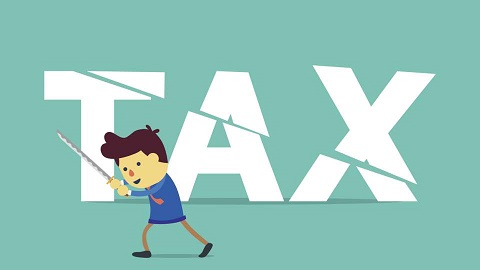Understanding how your estate will be taxed and how the various tax laws apply is key to formulating a good estate plan.
It is important while doing estate planning, to make sure that it is aligned with your will and that it is formulated in such a way that the tax burden is minimized. A good estate plan can only be structured if you understand the various tax laws and how it applies to your estate.
The three most common taxes your executor will need to deal with are income tax, capital gains tax and estate duty – but what are these taxes and how do they apply to one’s estate?
Income Tax
Tax cannot be escaped, even in death! SARS has first claim to what you rightfully owe them. Your executor, who will effectively step into your shoes after your passing, is responsible for submitting your tax returns to SARS, and to make sure that all tax returns are up to date – including any outstanding tax years (which can often lead to delays in winding up the estate).
Legislative changes made in 2016 now directs that there are effectively two tax assessments that your executor will need to carry out. The ‘pre-date of death’ assessment must include all income and deductions applicable to the deceased up to the date of death, and the ‘post-date of death’ assessment which will include dividends, interest and rental income which accrued during the winding-up process up until the Master has formally approved the liquidation and distribution account – which is generally the expiry date of the Section 35 advertisement.
Capital Gains Tax
All South African residents, whether living or deceased, are required to pay capital gains tax. A capital gain arises when you dispose of an asset on or after 1 October 2001 for proceeds that exceed its base cost.
The Income Tax Act provides that the deceased is deemed to have disposed of all their assets to the deceased estate. As there is a deemed disposal of each asset, the gain representing the value increase from the base cost (the acquisition value plus some allowed additions, for example, capital improvements to a house) to the market value on the date of death is potentially subject to CGT.
When a person dies, the laws of succession come into effect which gives rise to a change in ownership of the deceased’s assets, and this, in turn, has CGT implications.
Further, all assets that pass to a surviving spouse, whether through testate or intestate succession, do not incur CGT as they are subject to roll-over relief. CGT is also not payable on the first R2 million profit on the disposal of a primary residence.
Estate Duty
SARS describes Estate Duty as follows: “Estate Duty is levied on the worldwide property and deemed the property of a natural person who is ordinarily resident in South Africa and on South African property of non-residents.”
If you do own foreign assets, it is important to be aware of the tax regime that applies to the foreign country in which you own assets and to find out whether there is a double taxation agreement with South Africa to avoid being taxed twice on death.
SARS further states that “various deductions under section 4 of the Estate Duty Act, 1955 are allowed to determine the net value of the estate. An abatement of R3.5 million is allowed against the net value of the estate to determine the dutiable value of the estate. The Estate Duty is levied on the dutiable value of an estate at a rate of 20% on the first R30 million and a rate of 25% on the dutiable value of the estate above R30 million.”
The first deceased spouse can roll-over this abatement to the surviving spouse who will then have an R7 million estate duty abatement on his/her death. Also, where the deceased bequeath assets to his surviving spouse (including proceeds from a domestic life policy) no estate duty will be charged on the applicable assets.
Retirement annuities, pension funds, provident funds or living annuities are all attractive estate planning tools since funds held in these do not form part of the deceased estate and are therefore not included when calculating estate duty.
When doing estate planning, one of the main goals should be to calculate the liabilities in one’s deceased estate, including any money owing to SARS in the form of income tax, CGT, and estate duty. When failing to do careful planning, the liquidity in your estate and your estate’s ability to meet its obligations can be compromised. We can navigate you through the process of optimal tax planning of your estate. Contact us today at 012 347 0561 or deon@iqaccounting.co.za to speak to Deon.

